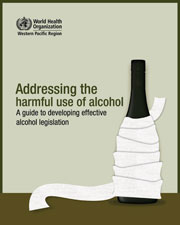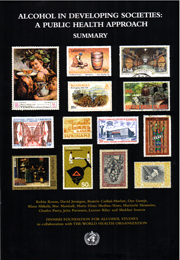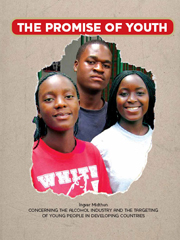
A call for action: Influencing the GATS negotiations
Some of the discussions under the GATS Agreement are of great importance for the future of national alcohol control policies, not the least in developing countries where we see increasing alcohol consumption as a result of economic development.
A poor result in the GATS negotiations may results in lost freedom of action for national and local governments. On the other hand, by some lobbying efforts from NGOs and public health interests the next months the potential damage can be greatly reduced. A call for action has been published by FORUT.
The key issue now is the negotiations on “domestic regulations” in the so-called Working Party on Domestic Regulations under the GATS Agreement. In the existing negotiation document there are 4-5 topics which, in particular, are worrying from a public health point of view.
The discussion on these topics may, however, turn out well if some more governments come out with “the right position” when negotiations are resumed. A limited lobbying exercise by NGOs and public health interests may make the difference!
A need for action – be prepared!
Today nobody knows if, when and how the negotiations may come back on track again. Some countries are pushing for an immediate resumption, while others are just waiting.
But we have to be prepared for a situation where
* a resumption of the WTO negotiations may come on very short notice;
* all sub-committees and working groups will then resume their negotiations immediately;
* negotiations will be carried out at full speed;
* once the negotiations are back on track, most ministries and Geneva delegations will be very busy and difficult to catch for meetings and discussions;
* ministries and delegations will tend to avoid any additional “disturbances” from interest groups which may complicate the negotiations.
This means that NGOs who have the intention to influence the discussions, must be prepared, they must be ready to act very fast and – most important of all – they must start acting now, while national ministries and negotiators have the time to listen.
Suggested action
NGOs and resource persons in the alcohol field should contact their Ministry of Foreign Affairs with a document pointing out the issues of importance and suggesting a contribution from your national delegation in the Working Party on Domestic Regulations in Geneva. The Working Party will meet again when the freeze in the overall WTO negotiations is over.
The Working Party will continue its discussions on the basis of the document Disciplines on domestic regulation pursuant to GATS article VI:4 - Consolidated working paper (JOB(06)/225). This document was presented to the Members states by the Chairman of the Working Party in mid-July.
You may get a copy by sending an e-mail to dag.endal@forut.no. Your national government will probably not let you see the draft document.
If possible, contact should also be taken to other ministries which are responsible for the national alcohol policy; eg. health, social welfare. It is the scope of authority and freedom of action for these ministries that is now subject to negotiation in the GATS.
![]()
![]()
Developed with CustomPublish CMS by Nettinfo AS




